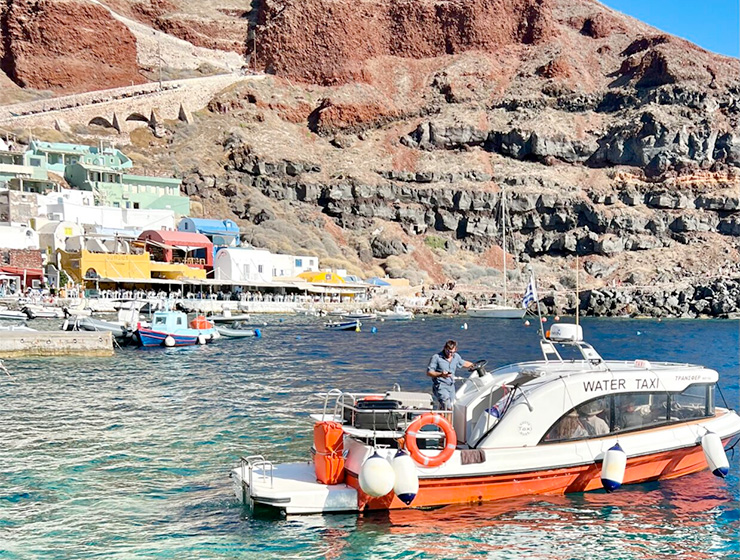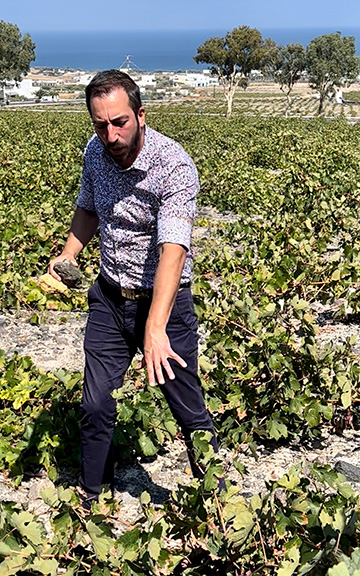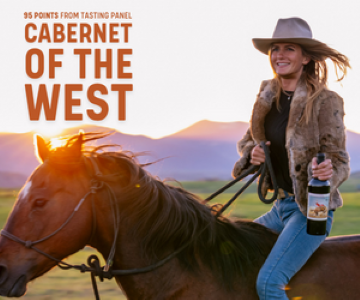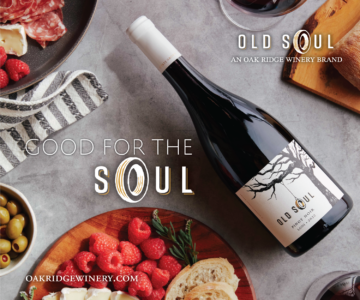
story and photos by Charlene Peters
In the southern Cyclades islands of Greece, a caldera is submerged in the Aegean Sea, courtesy of a volcanic eruption in 1612 BC. Tourists who visit the island of Santorini often motorboat over for a swim in the hot springs that run under this geological gem, which has long been associated in mythology with the lost city of Atlantis.
It’s no myth, however, that the vineyards of Santorini are attracting attention in the world of wine. The grapevine’s success here is attributed to the salty sea mist carried over the edge of pumice-stone cliffs by the meltemi winds at nighttime as well as the soil structure: a mixture of volcanic rock and ash.
Though Greece was one of the most ancient civilizations to make wine, it’s still considered New World, as the country has only been producing noteworthy wines since the late 1970s—much like Napa Valley. The two destinations share a notable trait: vineyards that thrive on volcanic soil.
Tim Clarke, wine ambassador for Greek yachting company Variety Cruises, has noticed a shift in recent years in travelers’ awareness of the country’s wines. “In 2000, people were coming in asking if Greece was a wine-region country,” he says. “Today, it’s all about the Assyrtiko,” Greece’s noble variety.
In the ’70s and ’80s, as Napa Valley made history during the Judgment of Paris competition that shook the wine world, Greece began attracting notice for quality Assyrtiko produced by a handful of wineries. But long before the event put the California region on the map, the Judgment of Paris had roots in ancient Greek mythology, as it refers to when Paris of Troy chose Aphrodite as the fairest of all goddesses. His decision was deemed a bribe from Aphrodite, who promised to bestow upon him the one and only Helene of Troy. This abduction is said to have instigated the Trojan War and fall of the city.

According to Clarke, approximately 300 different grape varieties are grown in Greece, of which 30 can be found in Santorini; compare this to Napa Valley, which is home to roughly three dozen varieties. The first major players to receive attention for their Assyrtiko in Santorini included Boutari, Argyros, and Gaia Wines. In 1994, Gaia had produced 10,000 bottles of wine when its owner, Yiannis Paraskevopoulos, began knocking on restaurant doors to tout his product’s quality. Indeed, the wines of Gaia offer structure, complexity, an impressive finish, and ageworthiness. Gaia recently opened a sister property in Koutsi on the mainland of Nemea, and it continues to use indigenous yeast it refers to as “wild ferment.”
Argyros is a luxury winery with a vineyard of century-old, ungrafted vines trained low to the ground in a wreath shape. “Santorini is the driest spot in Europe,” explains on-site wine consultant Evangelos Beris. “If we have the vines on the ground, the water evaporation stays on the leaves,” which in turn protects the grapes from the strong sunlight. Another vine-training method known as Koulouri, or Klada, involves shaping the vines into a large, hollow cookie–like shape that hangs almost vertically over the ground. Says Beris, “It’s like a complex system—a short trunk separating into three different branches, pretty much, but very, very short.”
Santorini growers are not permitted to plant anything other than indigenous grapes. Thanks to the island’s natural immunity to phylloxera, which is partly due to the lack of clay in the soil, some of the vines, especially those that grow Assyrtiko, are over 200 years old. The dry and hot climate stresses the vines, prompting them to produce more concentrated grapes that retain high natural acidity.
It’s no surprise that other countries are noticing Santorini’s success with Assyrtiko. In fact, the Clare Valley region of South Australia has cuttings ready so that it can begin crafting its own version of the wine.
Charlene Peters is a travel, food, and wine writer; contact her at [email protected].


